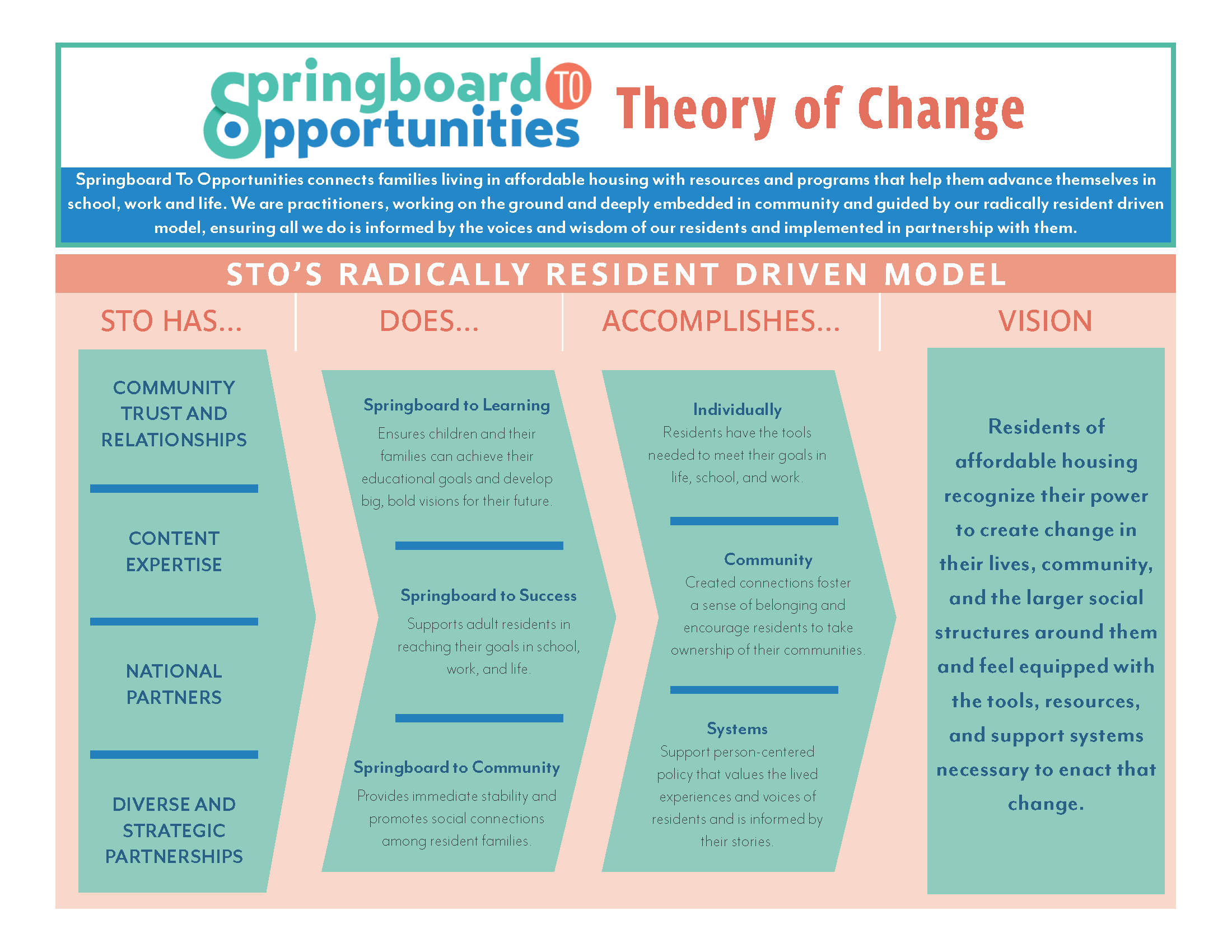All families are entitled to a future not pre-destined by circumstances.
Springboard’s model is guided by our radically resident driven approach. We place families living in communities at the heart of all programs and partnerships. No one knows better than families themselves what it is that they need to reach their goals and achieve their dreams.
By engaging residents in participatory planning, transparent dialogue, and resident organizing approaches, residents take ownership over Springboard as an organization, as well as their communities. When families take part in planning for change as they do with Springboard, they are given ownership of the process and are empowered to be advocates in their communities.
Theory of Change
Centered in our radically resident driven model, Springboard’s Theory of Change takes a holistic approach, working to deeply know and understand the different factors affecting a whole person. We provide support for families as they work to create change and reach their goals on an individual, community, and systems level, while simultaneously elevating their stories and voices to counter the harmful narratives that surround low-income families.
Our ultimate goal is for residents to recognize the power that they already have to disrupt these systems and make change within their own lives, communities, and the various systems that affect their day-to-day lives by providing the tools and supports necessary to enact that change.
Why We Matter
Springboard To Opportunities is built on the premise that affordable housing combined with strategic, resident-engaged services can provide a platform for low-income people to advance themselves in life, school and work.
Affordable housing is an important starting point, but it’s not enough.
Today, more than 16 percent of Americans are poor, and almost one in five children lives in poverty. An affordable rent – either set at a below-market rate or at a percentage of income – is an essential step toward helping low-income people stabilize their living situations so they can move ahead in life.
However, many individuals and families living in affordable housing face multiple obstacles to achieving their aspirations. For example:
Access to safe and affordable housing is a critical step toward breaking the cycle of poverty, but it is not sufficient on its own. Residents living in affordable housing also need supportive services to help overcome these challenges and achieve a more secure and hopeful future.
Resident services must actively engage residents to be effective.
- They may not have the education or experience necessary to obtain and keep a decent-paying job.
- They may be single parents with several young children, without affordable child care or transportation to get to a job.
- They may suffer from mental illness, drug addiction or the aftermath of domestic violence, or they may be caring for family members with these problems.
- They may not know about – or know how to navigate – the resources in their community that could help them succeed.
- They may have language or cultural barriers preventing them from connecting with resources or succeeding in school or the workplace.
When resident services are successful, everyone wins.
